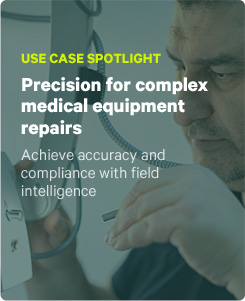
What could a product manager for one of the world’s largest fruit-breeding operations have in common with the person in charge of service operations management at Shell? A lot more than you’d think. We interviewed Carol Higgins, Product Manager at International Fruit Genetics (IFG), and Kenneth Bohn, Service Operations Management at Shell as part of an EMPOWER’20 session titled Empowering Operations with Citizen Developers. While these two ProntoForms low-code wizards are from entirely different industries, in a citizen developer role, they use our platform similarly.
Read on to discover their challenges, tips and tricks, and advice they’d give those early on in their journey with ProntoForms.
ProntoForms IS empowering
When Carol’s team was first looking at software to gather information in the field, they explored solutions for each department such as their quality, technical, and commercial teams. She said they quickly realized this would prove difficult in the organization’s efforts to gather data and posed a challenge for managing licenses and updates.

The a-ha moment came when IFG noticed they could customize ProntoForms to meet everyone’s needs and gather information in a common location for upload into different internal systems. ProntoForms has empowered International Fruit Genetics’ entire organization to move from paper and multiple tracking systems to a single source.
According to Ken, Shell was empowered by ProntoForms ability to automate many of the company’s end-to-end processes. Instead of having Excel, Microsoft Forms, and other platforms, Ken’s group has integrated everything within ProntoForms and says that doing so proved to be successful.
How many citizen developers does it take to build a form?
To finish the punch line of the joke, sometimes only one. In Carol’s case, she’s the sole citizen developer on her team. She works with other departments within IFG and gathers her colleagues’ requirements to develop their requested forms. Carol mentioned she has taken full advantage of ProntoForms’ Professional Services packages and credits the team’s support with helping IFG have a single citizen developer at the helm.
Kenneth mentioned that since Shell is such a large company, he doesn’t have the bandwidth to be a citizen developer for every organization under its umbrella. Luckily, since ProntoForms is low-code and very intuitive, Kenneth can find a citizen developer within each organization and train them to become the focal point within their team.
Advice for your past self?
We asked Carol and Kenneth what advice they wish they could have given themselves when they began using ProntoForms. Both mentioned starting out with smaller and simpler forms.
Carol wished she would have begun with the easiest form or the simplest process she sought to automate and grown from there rather than “trying to solve the world’s problems all with a single form.”
Kenneth gave an example of how workers in the field faced difficulties when completing a form with too many questions, making the process too cumbersome for them to use. In retrospect, he would have built templates to have a unified form across Form Spaces instead of multiple variations of the same one.
The how to’s of requirements gathering
When it comes to gathering requirements, the two companies again have a similar approach. Both Kenneth and Carol sit with the person who requested a form and use a standard template to determine their exact needs. Carol builds out the forms and asks her colleagues to test them before they go live into production. Kenneth passes the form building task on to a citizen developer who will take an early version of the form through a UAT process with a few users trying it out to see if it makes sense and then the form is deployed.
A common challenge
Our dynamic citizen developers shared how they faced a similar challenge in the early days: convincing people in their organizations that ProntoForms was the best solution for the job. Carol explained to IFG’s teams how ProntoForms could be adapted to meet their unique needs using technical questions relevant to agriculture. When she presented her first custom form and the quality and technical managers saw how easy it was to adapt to any use, everyone was sold.
Since Shell has many different processes sitting in numerous platforms in areas throughout the organization, Kenneth felt the pain in convincing people to choose ProntoForms over Microsoft Forms, Excel, or paper. He said that once the teams started to see what could be done with ProntoForms and how it integrated with other systems such as SharePoint, they were sold.
Conclusion
The conversation we had with Carol and Kenneth at EMPOWER’20 showcased how citizen developers, armed with ProntoForms, are at the forefront of bringing about digital transformation. Regardless of the industry, our best-in-field mobile forms app solution is bringing about profound improvements in business operations. Want to see the solution in action? Request a live demo today.



